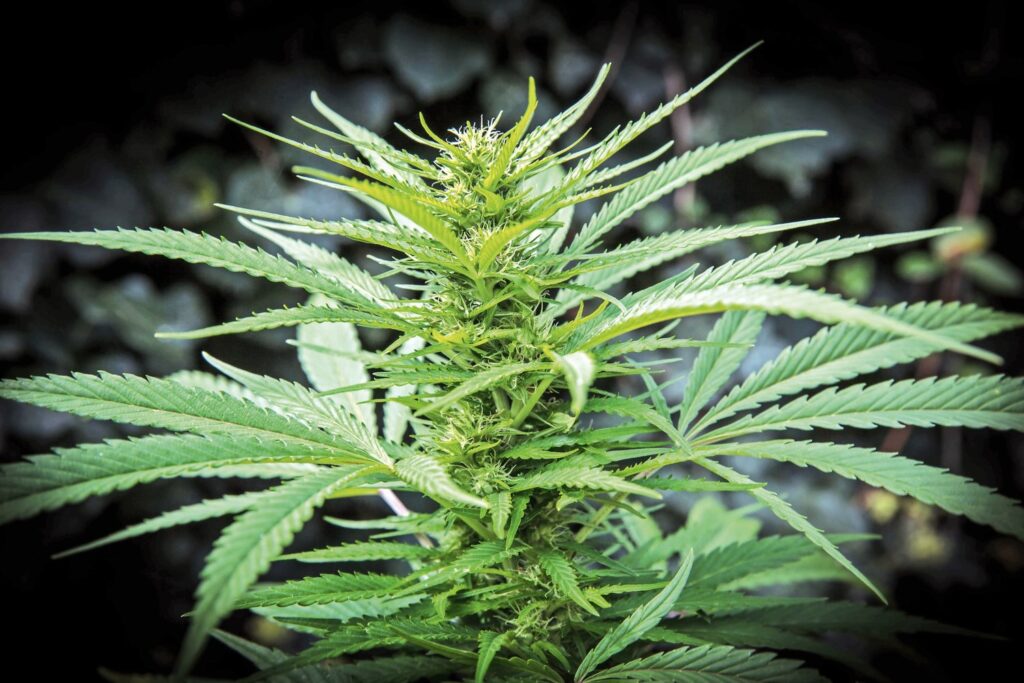No products in the cart.
Uncategorized
Legalizing Medical Marijuana in Singapore: Pros and Cons
Introduction
Background on medical marijuana
Medical marijuana refers to the use of cannabis or its cannabinoids for the treatment of various medical conditions. While the use of marijuana for medical purposes has gained acceptance in many countries around the world, Singapore has maintained a strict stance against its legalization. The background on medical marijuana in Singapore is rooted in the country’s zero-tolerance drug policy and the belief that cannabis poses significant risks to public health and safety. This approach is supported by the government’s commitment to maintaining a drug-free society and preventing the potential abuse and misuse of marijuana. However, the debate on legalizing medical marijuana in Singapore continues, with proponents arguing that it could offer alternative treatment options for patients and potentially generate economic benefits. Despite the ongoing discussions, the current legal framework in Singapore prohibits the use, possession, and distribution of marijuana, including for medical purposes.
Current legal status in Singapore
The current legal status of medical marijuana in Singapore is that it is strictly prohibited. Under the Misuse of Drugs Act, the possession, consumption, cultivation, and trafficking of marijuana are all considered serious offenses. Singapore has a zero-tolerance approach towards drugs, and the penalties for drug-related offenses, including marijuana, can be severe, including lengthy prison sentences and even the death penalty. The government maintains that this strict stance is necessary to maintain public safety and prevent drug abuse. However, there is an ongoing debate about whether Singapore should consider legalizing medical marijuana, as it has been shown to have potential therapeutic benefits for certain medical conditions.
Purpose of the article
The purpose of this article is to examine the pros and cons of legalizing medical marijuana in Singapore. With the growing acceptance and use of medical marijuana worldwide, it is important to evaluate its potential benefits and drawbacks in the context of Singapore’s legal and cultural framework. By exploring the potential medical benefits, such as pain relief and treatment for certain medical conditions, as well as the potential social and legal implications, this article aims to provide a comprehensive analysis of the issue. Ultimately, the goal is to contribute to the ongoing debate and inform policymakers, healthcare professionals, and the general public about the potential impacts of legalizing medical marijuana in Singapore.
Pros of legalizing medical marijuana
Potential health benefits
The potential health benefits of legalizing medical marijuana in Singapore are numerous. Firstly, it has been proven to alleviate chronic pain, making it a viable alternative to addictive painkillers. Additionally, medical marijuana has shown promise in treating conditions such as epilepsy, multiple sclerosis, and Parkinson’s disease. It can also help cancer patients by reducing nausea and stimulating appetite. Furthermore, legalizing medical marijuana would provide patients with more treatment options, allowing them to explore alternative and potentially more effective therapies. Overall, legalizing medical marijuana in Singapore could greatly improve the quality of life for patients suffering from various debilitating conditions.
Economic opportunities
The legalization of medical marijuana in Singapore presents significant economic opportunities. By allowing the cultivation, production, and sale of medical marijuana, the government can create a new industry that has the potential to generate substantial revenue. This industry would not only provide employment opportunities but also attract foreign investments, leading to economic growth. Additionally, the legalization of medical marijuana could lead to the development of a robust research and development sector, as scientists and researchers explore the potential medicinal benefits of cannabis. This could further stimulate innovation and attract top talent to Singapore. Overall, the economic opportunities associated with legalizing medical marijuana are vast and can contribute to the country’s economic prosperity.
Reduced strain on law enforcement
One of the key benefits of legalizing medical marijuana in Singapore is the reduced strain it would place on law enforcement. Currently, law enforcement agencies are tasked with enforcing strict laws against the possession, cultivation, and distribution of marijuana. This requires significant resources and manpower, which could be better utilized in addressing more serious crimes. By legalizing medical marijuana, law enforcement could focus their efforts on more pressing issues, leading to a more efficient and effective criminal justice system.
Cons of legalizing medical marijuana
Potential misuse and abuse
The potential misuse and abuse of medical marijuana is a significant concern that needs to be addressed. While the legalization of medical marijuana can provide numerous benefits, there is also a risk of it being misused for recreational purposes. This could lead to an increase in substance abuse and addiction problems within the community. Additionally, there may be challenges in regulating the distribution and usage of medical marijuana to ensure it is used only for legitimate medical purposes. It is crucial for strict regulations and monitoring systems to be in place to prevent the potential misuse and abuse of medical marijuana in Singapore.
Impact on public health
The legalization of medical marijuana in Singapore would have a significant impact on public health. On one hand, proponents argue that it could provide relief for patients suffering from chronic pain, epilepsy, and other debilitating conditions. Medical marijuana has been shown to alleviate symptoms and improve the quality of life for these individuals. Additionally, legalizing medical marijuana could potentially reduce the use of harmful opioid medications, which have been linked to addiction and overdose. On the other hand, there are concerns about the potential risks and side effects of marijuana use, especially among vulnerable populations such as adolescents and pregnant women. It is important to carefully regulate and monitor the use of medical marijuana to ensure the safety and well-being of the public. Overall, the impact of legalizing medical marijuana on public health in Singapore would be multifaceted and requires a thorough examination of the benefits and risks involved.
Social and cultural implications
The legalization of medical marijuana in Singapore would have significant social and cultural implications. On one hand, it could potentially provide relief to patients suffering from chronic pain and other debilitating conditions. Medical marijuana has been shown to alleviate symptoms and improve the quality of life for individuals with conditions such as cancer, epilepsy, and multiple sclerosis. This could lead to a more compassionate and inclusive society, where the needs of patients are prioritized. On the other hand, there are concerns about the potential abuse and misuse of medical marijuana. Singapore has strict drug laws and any form of drug abuse is heavily penalized. The legalization of medical marijuana could lead to an increase in drug-related issues, such as addiction and impaired driving. It would require comprehensive regulations and strict enforcement measures to prevent these negative consequences. Overall, the social and cultural implications of legalizing medical marijuana in Singapore are complex and require careful consideration.
International examples
Countries with legalized medical marijuana
Countries with legalized medical marijuana have seen various benefits and drawbacks. On one hand, the availability of medical marijuana has provided relief for patients suffering from chronic pain, epilepsy, and other debilitating conditions. It has also generated significant revenue for the government through taxation and licensing fees. Additionally, legalizing medical marijuana has created new job opportunities in the cannabis industry. However, there are concerns about the potential misuse of medical marijuana and its impact on public health and safety. Critics argue that legalizing medical marijuana may lead to an increase in recreational use and the potential for addiction. Furthermore, there are challenges in regulating the production, distribution, and quality of medical marijuana products. Each country’s approach to legalizing medical marijuana varies, and it is important to carefully consider the pros and cons before implementing such policies in Singapore.
Lessons learned from their experiences
Lessons learned from their experiences
As countries around the world continue to debate the legalization of medical marijuana, it is important to examine the experiences of those who have already implemented such policies. One key lesson learned is the need for thorough regulation and oversight to ensure the safe and responsible use of medical marijuana. This includes establishing clear guidelines for prescribing and dispensing, as well as monitoring the effectiveness and potential side effects of treatment. Additionally, it is crucial to educate healthcare professionals and the public about the benefits and risks of medical marijuana, as well as the proper dosage and administration methods. By learning from the experiences of other countries, Singapore can make informed decisions about the potential legalization of medical marijuana and ensure that any future policies prioritize the well-being and safety of its citizens.
Comparisons to Singapore’s context
When considering the legalization of medical marijuana in Singapore, it is important to analyze the comparisons to Singapore’s context. Singapore has always maintained a strict stance on drug policies, with zero tolerance for drug use or possession. The country’s approach to drug control has been successful in maintaining a low rate of drug abuse and related crimes. Therefore, any consideration of legalizing medical marijuana must take into account the potential impact on Singapore’s existing drug control measures and the overall societal implications. Additionally, Singapore’s conservative cultural values and emphasis on law and order should also be considered when evaluating the potential benefits and drawbacks of legalizing medical marijuana in the country.
Regulatory considerations

Licensing and distribution
Licensing and distribution of medical marijuana in Singapore is a complex and highly regulated process. The government has strict guidelines in place to ensure that only qualified individuals and organizations are granted licenses to cultivate, produce, and distribute medical marijuana. This approach is aimed at maintaining control over the supply chain and preventing any potential misuse or diversion of the drug. The licensing process involves thorough background checks, extensive documentation, and compliance with stringent security measures. Additionally, the distribution of medical marijuana is closely monitored to ensure that it reaches only the authorized patients who have been prescribed the drug by certified medical professionals. This careful oversight helps to safeguard public health and prevent any unauthorized use of medical marijuana in Singapore.
Quality control and safety measures
Quality control and safety measures play a crucial role in the legalization of medical marijuana in Singapore. With the potential risks associated with the use of marijuana for medical purposes, it is essential to implement strict quality control measures to ensure the safety and efficacy of the products. This includes rigorous testing of the marijuana plants, extraction processes, and final products to ensure they meet the required standards. Additionally, comprehensive labeling and packaging regulations should be in place to provide clear information on dosage, potency, and potential side effects. By implementing these quality control and safety measures, Singapore can ensure that patients have access to safe and reliable medical marijuana products.
Monitoring and enforcement
Monitoring and enforcement play a crucial role in the legalization of medical marijuana in Singapore. With the potential risks associated with the misuse of this substance, it is essential to have strict monitoring systems in place to ensure that only eligible patients have access to medical marijuana. This can be achieved through the establishment of a comprehensive regulatory framework that includes licensing and registration of medical marijuana providers, regular inspections and audits, and the implementation of a robust tracking system to monitor the production, distribution, and consumption of medical marijuana. Additionally, effective enforcement measures should be put in place to deter illegal activities and ensure compliance with the regulations. This may involve conducting thorough investigations, imposing penalties for non-compliance, and collaborating with law enforcement agencies to combat illicit drug trade. By prioritizing monitoring and enforcement, Singapore can strike a balance between providing medical marijuana as a treatment option and safeguarding public health and safety.
Conclusion

Summary of key points
In summary, the legalization of medical marijuana in Singapore has both pros and cons. On the positive side, it could provide relief for patients suffering from chronic pain, epilepsy, and other medical conditions. It could also generate revenue for the government through taxation and create job opportunities in the cannabis industry. However, there are concerns about the potential misuse of marijuana, especially among the youth, and the impact it could have on public health and safety. Additionally, legalizing medical marijuana may require extensive regulation and monitoring to ensure its proper use and prevent abuse. Overall, the decision to legalize medical marijuana in Singapore should be carefully considered, weighing the potential benefits against the risks and implementing strict measures to mitigate any negative consequences.
Recommendations for Singapore
In light of the ongoing debate surrounding the legalization of medical marijuana in Singapore, it is crucial to consider potential recommendations for the country. Firstly, Singapore should conduct comprehensive research on the medical benefits and risks associated with marijuana. This will provide a solid foundation for decision-making and allow for an evidence-based approach. Secondly, the government should establish a regulatory framework that ensures strict control and monitoring of medical marijuana use. This would include setting up licensed dispensaries, implementing rigorous quality control measures, and developing a robust system for patient registration and monitoring. Additionally, healthcare professionals should receive proper training and education on medical marijuana, enabling them to provide accurate information and guidance to patients. Lastly, public awareness campaigns should be launched to educate the general population about the potential benefits and risks of medical marijuana, dispelling any misconceptions and fostering informed discussions. By implementing these recommendations, Singapore can navigate the complexities of legalizing medical marijuana while safeguarding public health and maintaining social order.
Closing thoughts
In conclusion, the debate surrounding the legalization of medical marijuana in Singapore is a complex and contentious issue. While proponents argue that it could provide relief to patients suffering from various medical conditions, opponents raise concerns about the potential for abuse and the lack of sufficient scientific evidence. Ultimately, the decision to legalize medical marijuana should be based on a thorough examination of the available research, the experiences of other countries, and the needs and values of the Singaporean society. It is essential to strike a balance between compassion for patients and ensuring public safety and health. As Singapore continues to navigate this challenging topic, it is crucial to approach it with an open mind, considering both the potential benefits and risks associated with legalization.


